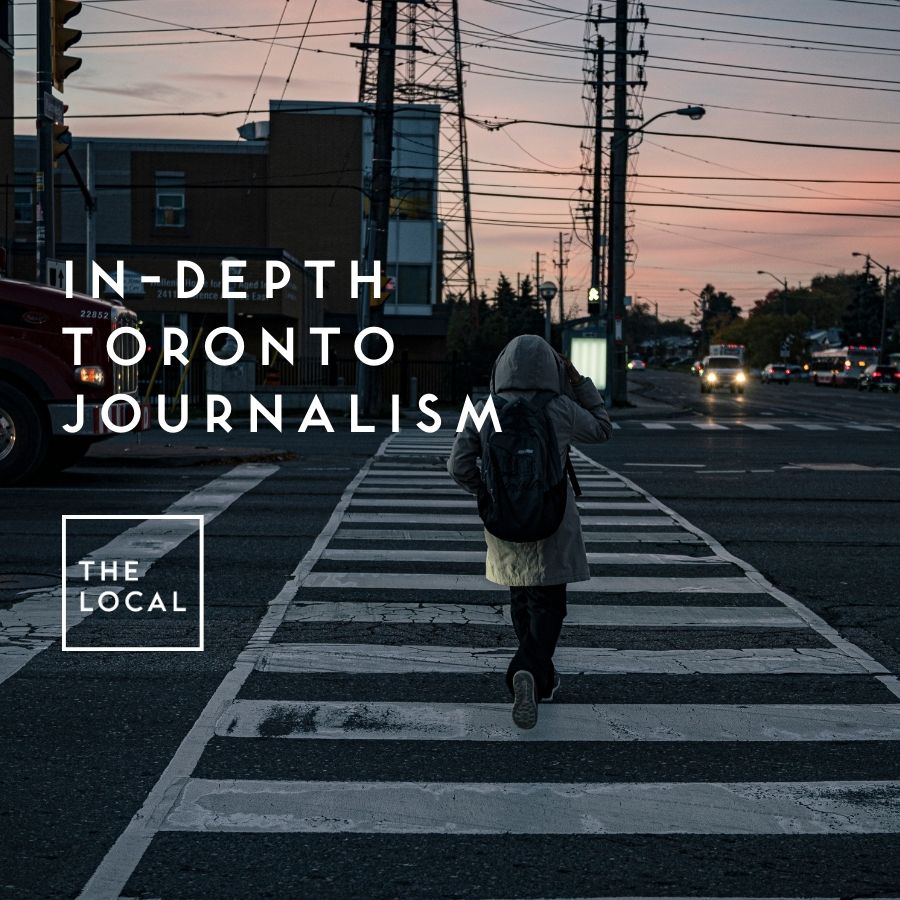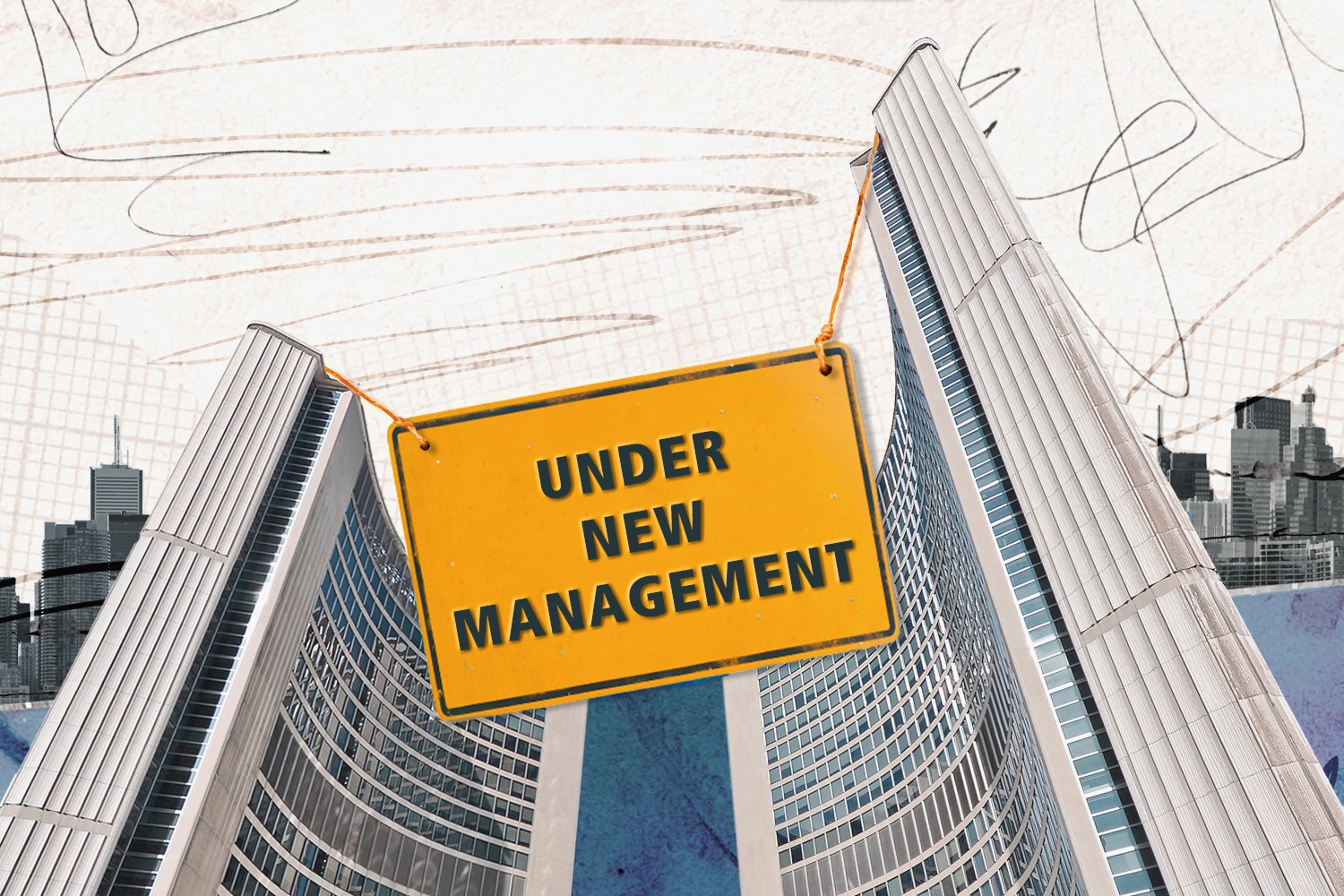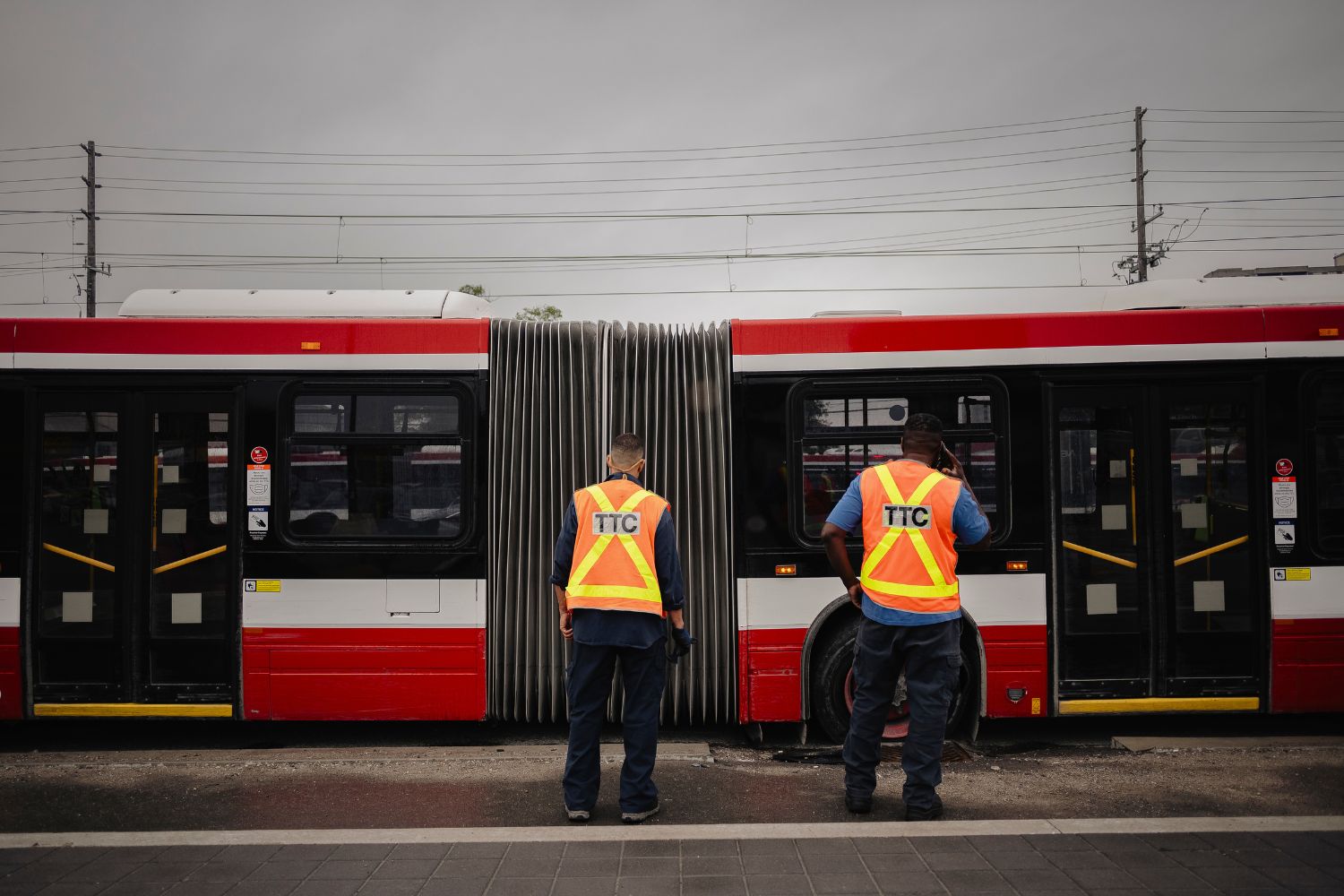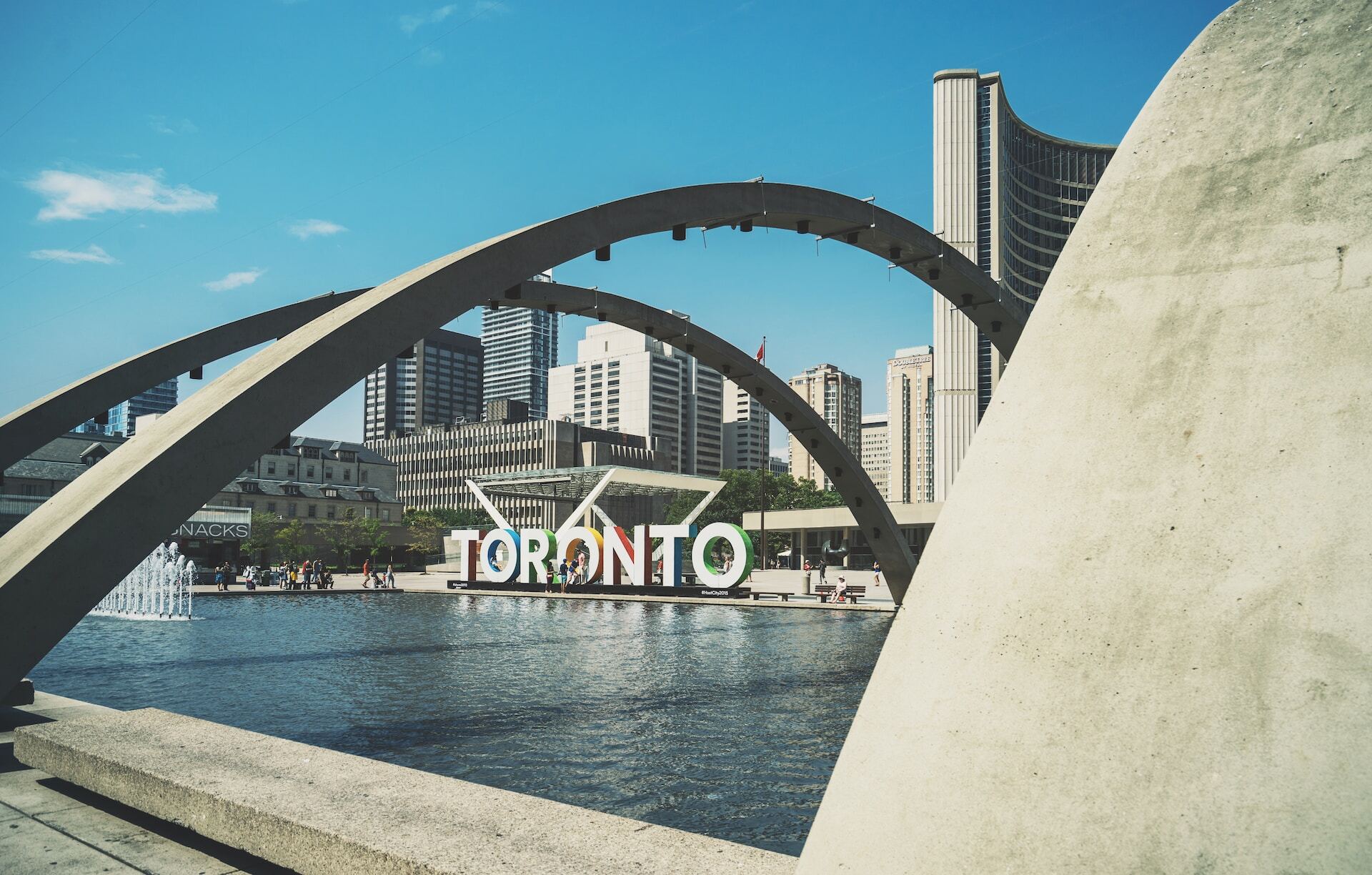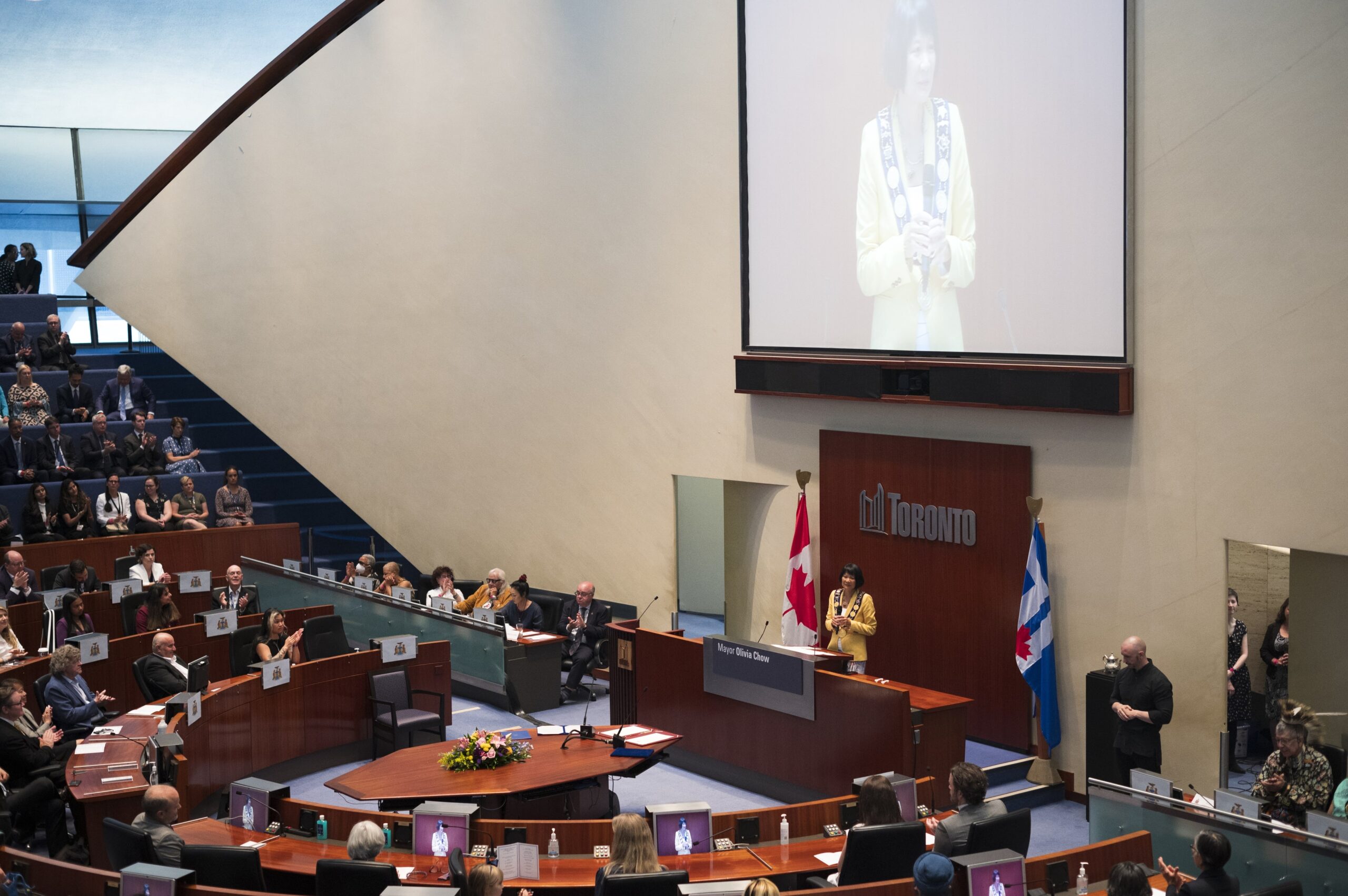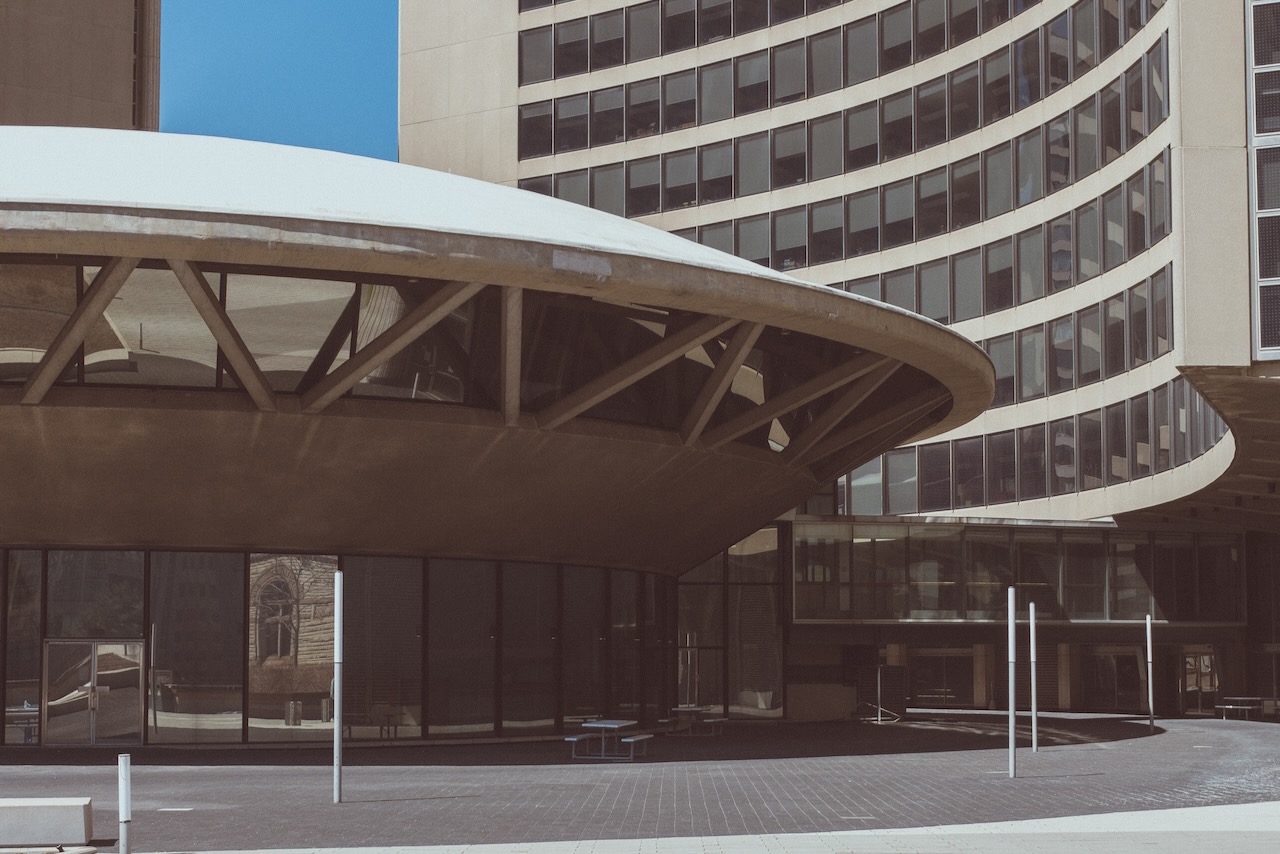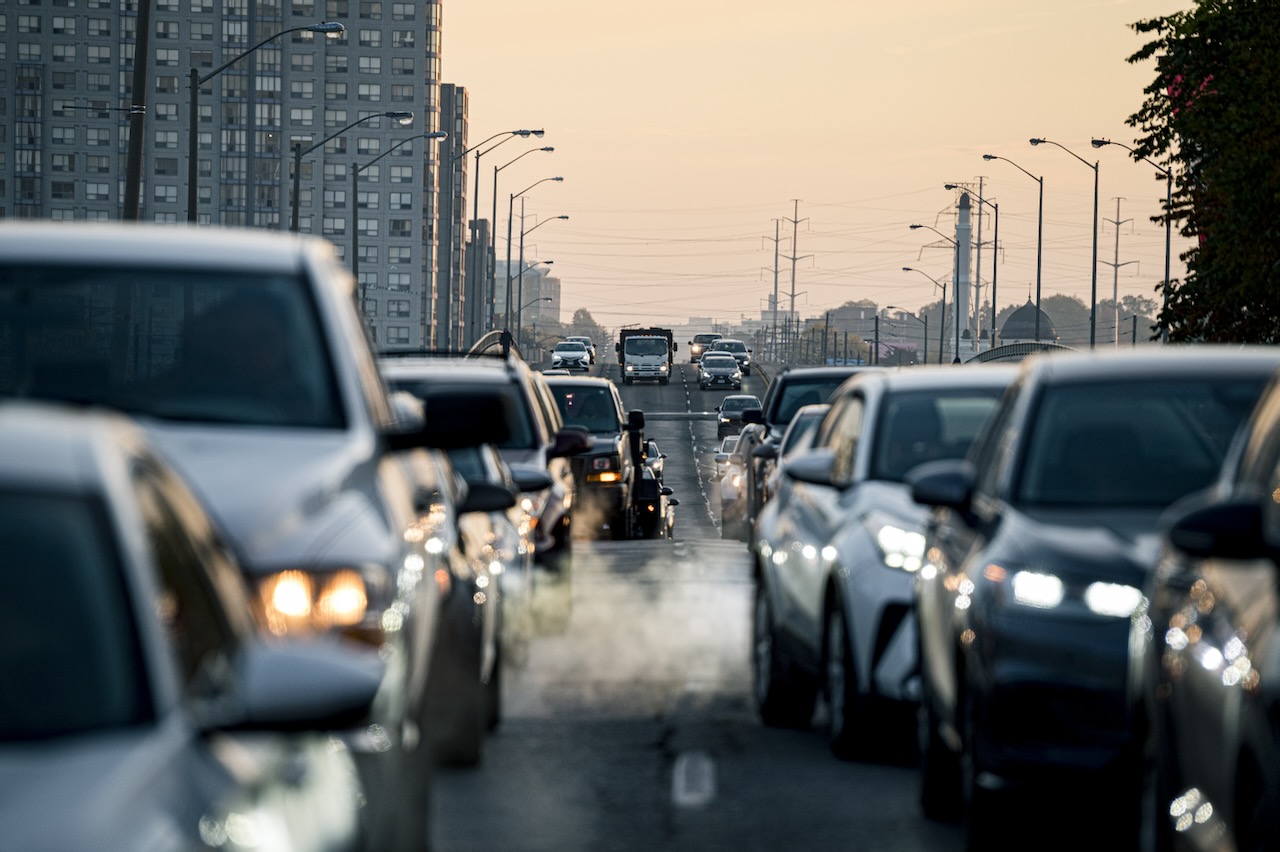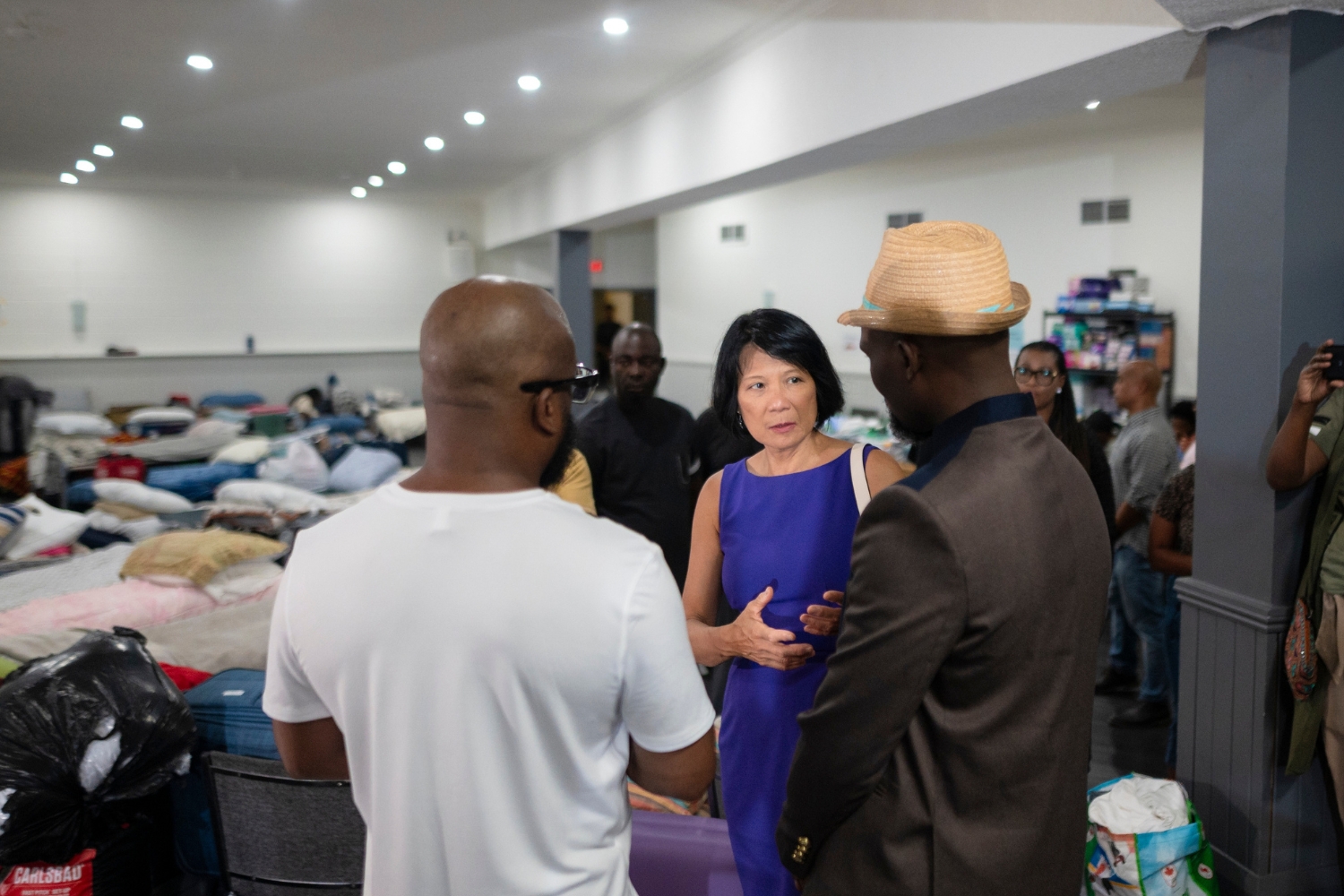
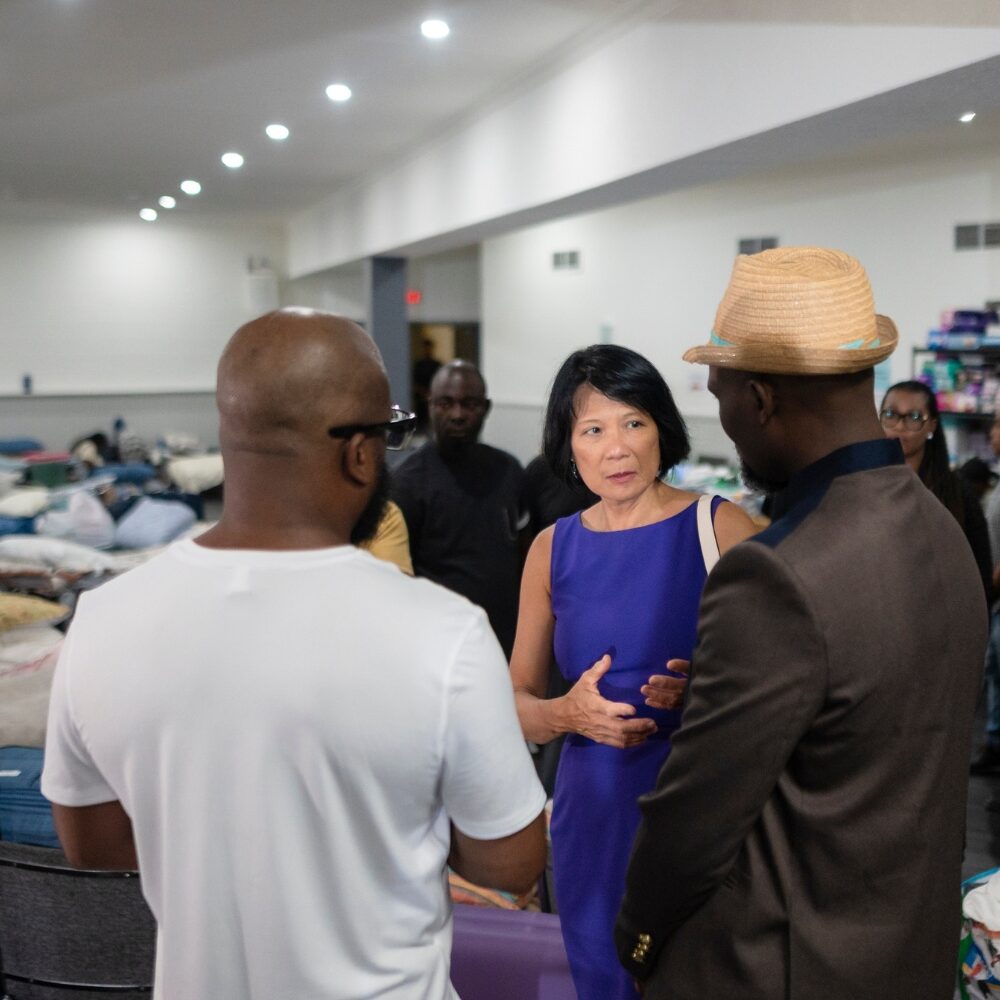
The first 100 days are crucial for a new mayor. Over the last few months in this column we’ve been following Olivia Chow’s first months in office—tracking her progress (or lack thereof) on election promises, who’s supporting and who’s impeding her, and everything else you need to know from City Hall.
Late Thursday evening, with councillors itching to finish the council meeting and go home, Olivia Chow stood up to speak to an item about the status of the city’s Net Zero Buildings Strategy. “This summer,” she began, harking back to this June, “we Torontonians received an unsettling wake-up call. The sky was choked red and orange, there was a grey haze, and it was hard to breathe. That air was coming into every crack, into our windows, and when I was biking that morning it was difficult, it hurts our lungs, and at the end of the day I had to wear a mask.”
Chow’s amendment included calling on the federal government, CMHC, and Toronto Hydro for resources. But it was also an opportunity to help fulfill a campaign promise: she wanted to ensure that property owners taking advantage of municipal building emissions incentives didn’t use retrofits as an excuse to “renovict” tenants or hike the rent.
It was a timely reminder that it’s been nearly 100 days since Chow took office—and that despite an unusually eventful few months, she still has a lot of promises to fulfill and work to do.
Intra- and intergovernmental relations
A month into her tenure, Chow substantially revamped council’s committees. She installed stalwart progressives in key roles previously held by Tory allies, resulting in a decidedly left-leaning Executive Committee. And while the committees in Tory’s 2018-2022 term were almost exclusively made up of hardcore supporters who voted with him on key issues, their new incarnations have a decidedly wider spread between Tory and anti-Tory poles.
Putting together friendly committees is relatively easy; getting other orders of government to cooperate is much harder. After decades of provincial and federal downloading (particularly when it comes to housing and transit), cities are now responsible for more services and infrastructure than ever before, without the resources and authority to meet those needs. This came to the fore quickly in the first few months of Chow’s mayoralty, when federal funding for housing asylum seekers and refugees ran out, leaving people sleeping on the streets.
Premier Doug Ford was happy to grant unprecedented power to then-mayor John Tory, who could be relied on to not put up serious resistance to the province’s agenda. Given the ideological divide between Ford and Chow, many were skeptical that Chow would be able to win any concessions. Surprisingly, that has not turned out to be the case: in addition to topping up the Canada-Ontario Housing Benefit to ease the refugee shelter crisis, the province agreed to establish a working group to discuss a new financial deal with the city.
Working with the federal government is not going quite as well. Finance Minister Chrystia Freeland was quick to write to Chow to tell her Toronto shouldn’t cry poor. They met a few weeks ago, but nothing concrete has been announced.
Housing
Chow’s biggest campaign promise was her plan to develop 25,000 rent-controlled homes—not as extensive as other candidates’, but still ambitious. Council approved the new target and a report on city-owned land suitable for housing, due later this year, but the major questions have yet to be addressed. Like other candidates’ plans, it depends heavily on financing from CHMC’s Rental Construction Financing Initiative, but it’s unclear whether a municipality can use the RCFI that way. The plan also involves funding from CMHC’s Housing Accelerator Fund, which launched in June. Earlier this year, council voted to direct city staff to apply for it and to explore using it for city projects. However, while London, Hamilton, and Vaughan have successfully negotiated funding agreements, there has been no news forthcoming regarding Toronto, and the application window is now closed. Without this (or equivalent) federal support, the housing plan won’t be feasible.
One concrete goal that is a step closer is establishing a Renters’ Action Committee. The motion, passed at the most recent council meeting, doesn’t actually establish the committee; it directs staff to work with the mayor’s office to “convene a forum” of stakeholders to decide what the committee’s mandate and makeup should be.
Transit
In late July, the SRT derailment caused the line’s early closure and forced the TTC to accelerate plans for replacement buses. Chow favours a BRT (bus rapid transit) route, as do some councillors. However, the project is still in the design stage, and the TTC is still negotiating with the province about who should pay for it. (You may ask: pay for finishing the design, or for actually building the busway? The answer is yes.)
Thanks to cost savings from the delayed Eglinton LRT project, Chow was able to announce increased TTC service. She will also benefit politically from changes that were in the works before she took office, such as (federally mandated) cell service and the introduction of debit and credit tap-to-pay. Transit advocates are hopeful that Chow’s election and the new TTC board signify a more compassionate approach to community safety on public transit—more frontline workers, fewer police. However, the TTC’s new plan for dealing with homeless people seeking shelter on transit seems more like moving people out of sight.
Revenue tools
Council is notoriously tax-shy, and Chow was quick to take advantage of the new-mayor honeymoon period to introduce new ways to raise revenue. She successfully passed her proposed graduated Municipal Land Transfer Tax scheme that increases taxes on sales of homes worth $3 million and up, and, at this most recent council meeting, passed promised reforms meant to beef up the new Vacant Home Tax. More potential taxes in the pipeline—as yet unapproved by council—are a land transfer tax for foreign home buyers that could be implemented by late 2024 and a commercial parking levy for 2025.
On the horizon
What’s next? The most recent council meeting raised several issues that will continue to keep cropping up: regulating taxis and Ubers, whether to protect industrial-zoned employment lands or allow mixed uses, a consortium of manufacturers taking over (and likely privatizing) recycling. But there are even more long-term and large-scale challenges coming in the next several months.
The city has just released its shelter plan for the upcoming winter. It plans to increase space by moving beds less than a metre apart, and also includes one (1) new 24-hour respite space with space for 40 people. It’s guaranteed that—just as in previous years—this system will prove inadequate and advocates will call on the city for more space and resources.
In November, the city and province’s “new deal” working group is expected to report on options for a new funding agreement. There will also be a new councillor elected in Scarborough Southwest, which could bring Chow a new ally, or opponent.
Budget chief Shelley Carroll has also promised news about city-wide budget consultations. The 2024 budget officially launches in early January and will be passed in mid-February. It’s a grim year for city finances in general, but on top of that, much of Chow’s agenda—arts funding, support for renters, more respite spaces—hinges on having enough room in the budget. While provincial legislation has given her a great deal of control over the budget, there is only so much she can do with a severe shortfall.
And, lastly, there are increasing noises about an impending federal election. This has the potential to both improve and throw a wrench in the city’s plans: the government may offer funding or legislative change to win goodwill, but there is no guarantee that a new administration won’t cancel it.
Olivia Chow has had to hit the ground running, and it’s impressive how decisively she’s been able to change council’s direction and win key goals. (Or, to look at it more cynically, how rapidly councillors change their political alignment based on who’s in charge.) She has the political will to change things, and it’s been a long time since anyone so highly placed did.
Now, that can’t make up for a shortage of funding or resources. But there are quite a lot of things Toronto could be doing but hasn’t—strategies for addressing finances, political deadlock, climate change, the housing crisis—simply for lack of political will. Will they work? It’s certainly worth trying, and for the first time in over a decade, it seems we are going to find out.
